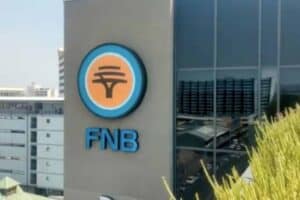Traders coordinated activities in chat room – CompCom.

Absa Bank will be spared a stiff penalty by the Competition Tribunal for its part in international forex collusion after it earlier came forward and confessed to the Competition Commission what was going on.
Commission spokesperson Sipho Ngwema confirmed to Moneyweb on Thursday night that Absa applied for corporate leniency as whistle blower and that one other bank that he did not name, might admit guilt and enter into an agreement with the Commission.
The Commission on Thursday afternoon said in a statement it would proceed to prosecute 17 international banks it alleges were guilty of price fixing and market allocation in the trading of foreign currency pairs involving the rand.
Investec, Standard Bank of SA and Absa Bank are among those involved.
The CompCom alleges that the practice has been ongoing since 2007 and has referred the matter to the Competition Tribunal for prosecution.
The commission is seeking an order that the banks have contravened the Competition Act and want an administrative penalty of 10% of their annual turnover imposed on the banks.
The banks accused of collusion are:
Bank of America Merrill Lynch International Limited, BNP Paribas, JP Morgan Chase & Co, JP Morgan Chase Bank N.A, Investec Ltd, Standard New York Securities Inc., HSBC Bank Plc, Standard Chartered Bank, Credit Suisse Group; Standard Bank of South Africa Ltd, Commerzbank AG; Australia and New Zealand Banking Group Limited, Nomura International Plc., Macquarie Bank Limited, Absa Bank Limited (Absa), Barclays Capital Inc, Barclays Bank plc.
Ngwema said the investigation is a leg of the international investigation into such activities and the Commission was working with other agencies in this regard.
Bloomberg reported in January that four banks, Citigroup Inc., Barclays Plc, JPMorgan Chase & Co and Royal Bank of Scotland pleaded guilty in May 2015 to rigging currency rates. “As part of an overall $5.8 billion settlement with multiple regulators, they agreed to pay the roughly $2.5 billion to the (US) Justice department.
It was not immediately clear exactly how the local prosecution fits in with this process.
Bloomberg reported that the US Justice department “isn’t finished probing global financial markets for collusion after years of investigating currency trading and interest-rate benchmarks that have resulted in more than $4 billion in criminal penalties.”
Financial Times reported that global banks have now paid more than $10bn in relation to the forex scandal, exceeding the $9bn paid by a larger group of institutions to settle the Libor rigging claims.
Calls have also recently been made in the US for the criminal prosecution of the individual traders involved in the collusion.
The South African Competition Commission said in a statement that it found that from at least 2007, “the respondents had a general agreement to collude on prices for bids, offers and bid-offer spreads for the spot trades in relation to currency trading involving US dollar/rand currency pair.
“Further, the commission found that the respondents manipulated the price of bids and offers through agreements to refrain from trading and creating fictitious bids and offers at particular times.
“Traders of the respondents primarily used trading platforms such as the Reuters currency trading platform to carry out their collusive activities. They also used Bloomberg instant messaging system (chatroom), telephone conversation and had meetings to coordinate their bilateral and multilateral collusive trading activities. They assisted each other to reach the desired prices by coordinating trading times. They reached agreements to refrain from trading, taking turns in transacting and by either pulling or holding trading activities on the Reuters currency trading platform. They also created fictitious bids and offers, distorting demand and supply in order to achieve their profit motives.
“The referral of this matter to the Tribunal marks a key milestone in this case as it now affords the banks an opportunity to answer for themselves,” said commissioner, Tembinkosi Bonakele.
Standard Bank declined an invitation to comment. Investec said it will cooperate with the competition authorites. “Unfortunately at this stage we still do not have further detail with respect to the nature of the investigation and are thus not able to comment on the matter,” Investec said in an emailed statement.
Absa also said it will continue to co-operate with the Commission and pointed out that that the Competition Commission has not sought any penalties against Absa.
In response to the announcement former FNB CEO Michael Jordaan pointed out on Twitter that FirstRand and Nedbank were not among the accused banks.
Brought to you by Moneyweb
Support Local Journalism
Add The Citizen as a Preferred Source on Google and follow us on Google News to see more of our trusted reporting in Google News and Top Stories.






